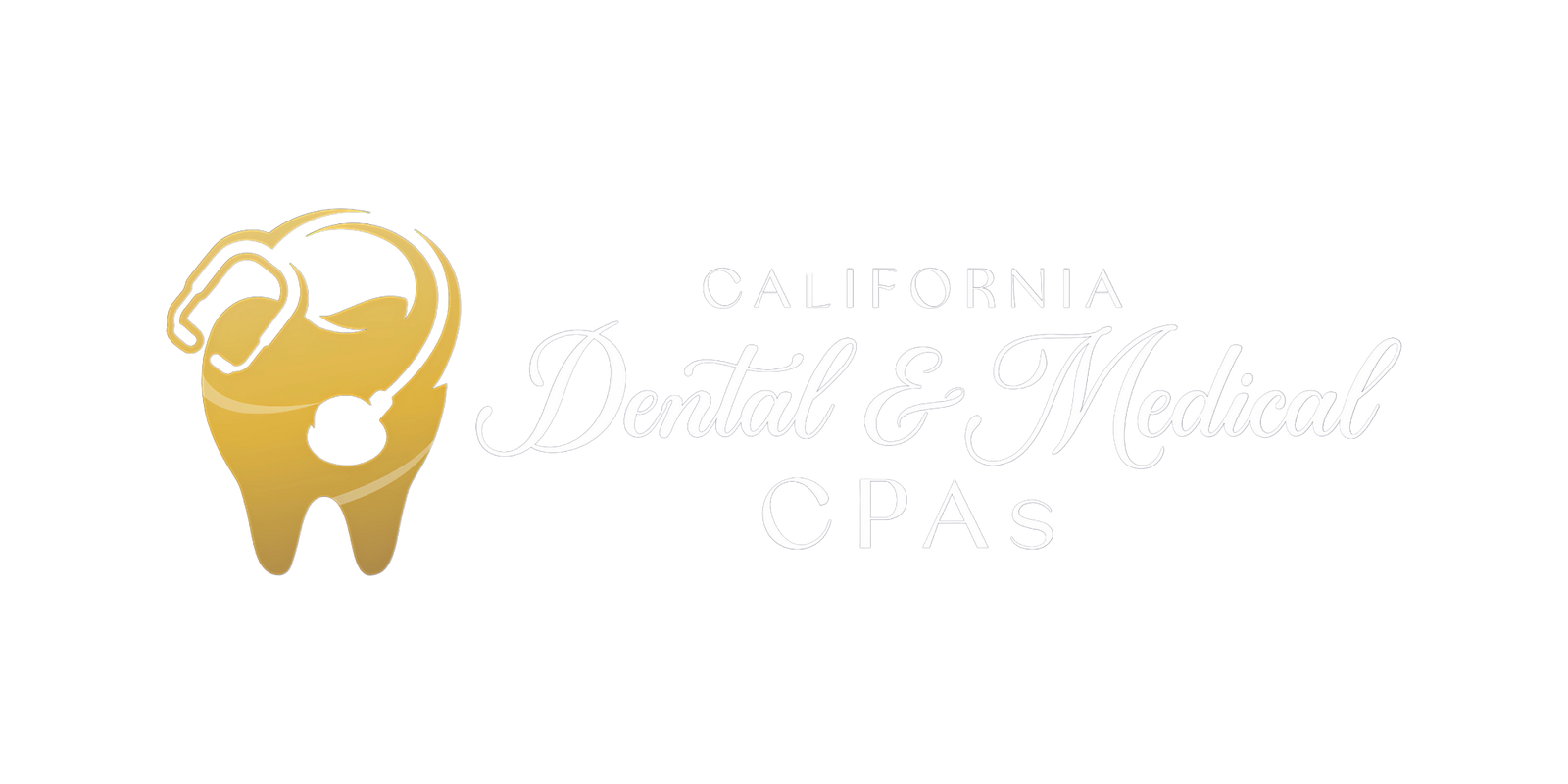As a dentist, managing your practice goes beyond just providing excellent patient care. In 2025, understanding the financial side of your practice is crucial for maximizing profits. That’s where dental accounting comes into play. With the right accounting services, you can tackle financial challenges specific to dental practices and ultimately enhance your profitability. This article will guide you through the best dental accounting services available, strategies for growth, and tips for reducing taxes, all tailored for dentists in the coming year.
Key Takeaways
- Dental accounting is vital for navigating the unique financial challenges faced by dental practices in 2025.
- Specialized accounting services can help uncover hidden deductions and optimize profitability.
- Utilizing financial reports can lead to smarter decision-making for practice growth.
- Effective budgeting is essential for scaling your dental practice successfully.
- A dental-specific accountant understands your unique needs and can provide tailored financial strategies.
Why Dental Accounting Matters for Your Practice in 2025

The Unique Financial Challenges Dentists Face Today
Running a dental practice in 2025 comes with its own set of financial headaches. It’s not just about treating patients; it’s about managing costs, staying compliant, and making smart investments. From keeping up with the latest ADA regulations to handling payroll and taxes, dentists have a lot on their plate. Dental accounting helps to navigate these challenges, ensuring your practice stays financially healthy.
How Specialized Dental Accounting Drives Profitability
Generic accounting might miss the nuances of a dental practice. Specialized dental accounting understands the specific revenue cycles, insurance reimbursements, and equipment depreciation that impact your bottom line. This expertise translates into uncovering hidden deductions and optimizing cash flow. For example, a dental CPA can help you take advantage of tax credits or plan for major equipment purchases. Ultimately, it’s about making informed decisions that boost your practice’s profitability. Did you know that Aprio’s dental accountants will listen generously and plot a course to take you there?
Dental-specific accounting offers improved visibility into the workings of your practice, the metrics that are driving outcomes, and the areas you need to focus on to drive changes you want to see for growth.
Best Dental Accounting Services for Small Practices in 2025
Streamlined Bookkeeping Tailored for Dentists
Running a small dental practice means you’re juggling a lot. You’re seeing patients, managing staff, and trying to keep up with the books. That’s where streamlined bookkeeping comes in. It’s about making the financial side of your practice less of a headache. The best dental accounting services for small practices in 2025 will offer cloud-based solutions that integrate with your practice management software. This means no more manual data entry and fewer errors.
- Automated bank feeds
- Real-time financial dashboards
- Customized reporting for dental-specific metrics
Affordable Accounting Business Services for Dentists
Cost is always a concern, especially for smaller practices. You need accounting services, but you don’t want to break the bank. The good news is that there are affordable options out there. Look for firms that offer tiered pricing or packages designed for practices of your size. CA Dental & Medical CPA understands the financial challenges faced by dental practices and can help you manage your finances effectively.
Outsourcing your accounting can actually save you money in the long run. You avoid the costs of hiring a full-time bookkeeper, paying for software licenses, and dealing with payroll taxes.
Here’s a quick comparison of potential costs:
| Service | In-House Bookkeeper (Annual) | Outsourced Accounting (Annual) |
|---|---|---|
| Salary | $40,000+ | Included in package |
| Software | $1,000+ | Included in package |
| Benefits/Taxes | $5,000+ | Included in package |
| Total | $46,000+ | $20,000 – $35,000 |
Consider client accounting services to ensure adequate internal controls and avoid risks associated with having the same people perform multiple duties. Remember to factor in the business use of your car, as the standard mileage rate for 2024 is 67 cents per mile mileage rate.
How Accounting for Dental Practices Boosts Profitability

Uncovering Hidden Deductions with Dentist Accounting
It’s easy to miss deductions if you’re not a tax expert, and that’s especially true in the dental world. How accounting for dental practices boosts profitability? Well, a dental-specific accountant knows the ins and outs of what you can write off. They can spot things a general accountant might overlook, like specialized equipment depreciation or continuing education expenses. This can lead to significant tax savings.
Strategic Financial Planning for Long-Term Growth
Think of your dental practice as more than just a place to fix teeth; it’s a business. Strategic financial planning is key to long-term success. A good accountant helps you set financial goals, manage cash flow, and plan for expansions or new equipment. They can also help you with things like client accounting services to ensure you’re always on top of your finances. Here are some key areas to focus on:
- Budgeting effectively for overhead costs.
- Forecasting revenue based on patient volume and procedures.
- Planning for capital expenditures like new technology.
Having a clear financial roadmap allows you to make informed decisions and avoid costly mistakes. It’s about more than just balancing the books; it’s about building a sustainable and profitable practice.
How accounting for dental practices boosts profitability? It’s about having a plan and sticking to it. A dental accountant can help you create that plan and keep you on track. They can also help you understand the unique financial challenges dentists face.
Dental Practice CPA Tips to Reduce Taxes in 2025

Proactive Tax Strategies Every Dentist Needs
Tax planning isn’t just for April. To truly minimize your tax burden, you need a proactive strategy. This means working with a dental practice CPA to forecast your income and expenses throughout the year. By doing so, you can make informed decisions about investments, deductions, and other tax-saving opportunities. For example, consider accelerating deductions by purchasing equipment before year-end or deferring income where possible. A dental CPA can help you identify these opportunities and implement them effectively.
- Regularly review your financial statements with your CPA.
- Adjust your estimated tax payments to avoid penalties.
- Keep detailed records of all income and expenses.
Maximizing Credits and Incentives for Dental Pros
Many dentists miss out on valuable tax credits and incentives simply because they don’t know they exist. Did you know that you might be eligible for credits related to energy-efficient upgrades to your office, or for hiring employees from specific groups? A knowledgeable CPA will be up-to-date on the latest tax laws and can help you identify and claim all applicable credits. For instance, the Work Opportunity Tax Credit (WOTC) can provide significant savings if you hire individuals from certain targeted groups. Make sure you are taking advantage of all available business expenses.
It’s important to remember that tax laws are constantly changing. What worked last year might not work this year. That’s why it’s so important to stay informed and work with a CPA who specializes in dental practices.
- Research available credits and incentives relevant to your practice.
- Document all qualifying expenses and activities.
- Consult with your CPA to ensure compliance with eligibility requirements.
Don’t leave money on the table. Partner with a specialized accountant to navigate the complexities of the tax code and keep more of what you earn.
Why Dentists Need a Specialized Accountant for Dental Profits

The Difference Between Generic and Dental-Specific Accounting
Generic accounting can handle basic bookkeeping, but it often misses the nuances of a dental practice. Dental-specific accounting goes beyond the basics. It understands the unique revenue cycle, insurance reimbursements, and equipment depreciation specific to dentistry. This specialized knowledge can translate into significant tax savings and improved cash flow. For example, a generic accountant might not know about certain deductions specific to dental equipment or continuing education for dentists. Choosing accounting software designed for dentists can streamline financial processes.
How a Dental CPA Understands Your Practice’s Needs
A Dental CPA is more than just an accountant; they are a financial partner who understands the dental industry inside and out. They can help with everything from practice startups to trust and estate planning. A dental CPA understands the importance of tracking key performance indicators (KPIs) like revenue per patient, overhead costs, and collection ratios.
A dental CPA can provide insights into areas where your practice is excelling and areas where there is room for improvement. This allows you to make data-driven decisions that can boost profitability and practice growth.
Here are some ways a dental CPA can help:
- Benchmarking: Comparing your practice’s financial performance against industry averages.
- Tax Planning: Identifying tax-saving opportunities specific to dental practices.
- Financial Forecasting: Projecting future revenue and expenses to help with budgeting and investment decisions.
Ultimately, why dentists need specialized accountant for dental profits boils down to maximizing financial performance and minimizing risk. A dental CPA can provide the expertise and guidance needed to navigate the complex financial landscape of the dental industry and achieve long-term success.
Top Dentist Accounting Strategies for Practice Growth in 2025
Leveraging Financial Reports for Smarter Decisions
To achieve practice growth, dentists in 2025 must fully utilize their financial reports. These reports offer a detailed view of your practice’s financial health, highlighting areas of strength and weakness. Regularly reviewing profit and loss statements, balance sheets, and cash flow statements enables informed decision-making. For example, tracking key performance indicators (KPIs) like patient acquisition cost, revenue per patient, and overhead expenses can reveal opportunities to improve efficiency and profitability. Here’s how to make the most of your financial reports:
- Establish a schedule for reviewing reports (monthly, quarterly, annually).
- Identify trends and anomalies in the data.
- Compare your practice’s performance against industry benchmarks.
Budgeting Tips to Scale Your Dental Practice
Effective budgeting is the cornerstone of scaling any dental practice. A well-structured budget provides a roadmap for financial growth, ensuring resources are allocated strategically. It’s not just about cutting costs; it’s about making smart investments that yield high returns. Consider these budgeting tips to fuel your practice’s expansion:
- Implement zero-based budgeting to justify every expense.
- Allocate funds for marketing and patient acquisition.
- Set aside a contingency fund for unexpected expenses.
A proactive approach to budgeting allows you to anticipate financial challenges and capitalize on growth opportunities. Regularly monitor your budget against actual performance and make adjustments as needed to stay on track with your financial goals. This is one of the top dentist accounting strategies for practice growth in 2025.
For example, if you’re planning to invest in new technology, factor in not only the initial cost but also ongoing maintenance, training, and potential revenue increases. Remember, a budget is a living document that should evolve with your practice’s needs. A dental CPA can help you with this.
As we look ahead to 2025, dental practices need to adopt smart accounting strategies to grow and thrive. By focusing on effective budgeting, tracking expenses, and optimizing revenue, you can set your practice up for success. Don’t miss out on the chance to learn more about these essential strategies! Visit our website today for expert tips and resources tailored just for dental professionals.
Final Thoughts on Dental Accounting Services
In conclusion, choosing the right dental accounting service can really make a difference for your practice. With the right support, you can focus more on patient care and less on financial stress. Whether it’s tax planning, bookkeeping, or financial consulting, these services can help you understand your numbers better and find ways to boost your profits. As we move into 2025, it’s clear that having a solid financial strategy is key to thriving in the dental industry. So, take the time to explore your options and find a partner that fits your needs. Your practice—and your peace of mind—will thank you.
Frequently Asked Questions
What are dental accounting services?
Dental accounting services help dentists manage their finances, including bookkeeping, tax planning, and financial advice tailored specifically for dental practices.
Why do dentists need specialized accounting?
Dentists face unique financial challenges, so specialized accountants understand the specific needs of dental practices better than general accountants.
How can accounting services help my dental practice grow?
By providing insights into your finances, accounting services help you make informed decisions that can lead to increased profits and better management of your practice.
What types of tax services do dental accountants provide?
Dental accountants offer services like tax preparation, planning to minimize tax liabilities, and advice on how to take advantage of tax credits.
Can dental accounting services help me save money?
Yes, they can identify hidden deductions and create tax strategies that can save you money on your taxes.
How do I choose the right dental accounting service?
Look for a firm that specializes in dental accounting, has good reviews, and understands the unique challenges of your practice.
What should I expect from a dental accountant?
You should expect personalized service, expert advice on financial matters, and support in navigating the financial aspects of running a dental practice.
Is it worth investing in dental accounting services?
Yes, investing in these services can lead to better financial management, increased profits, and more time to focus on patient care.






